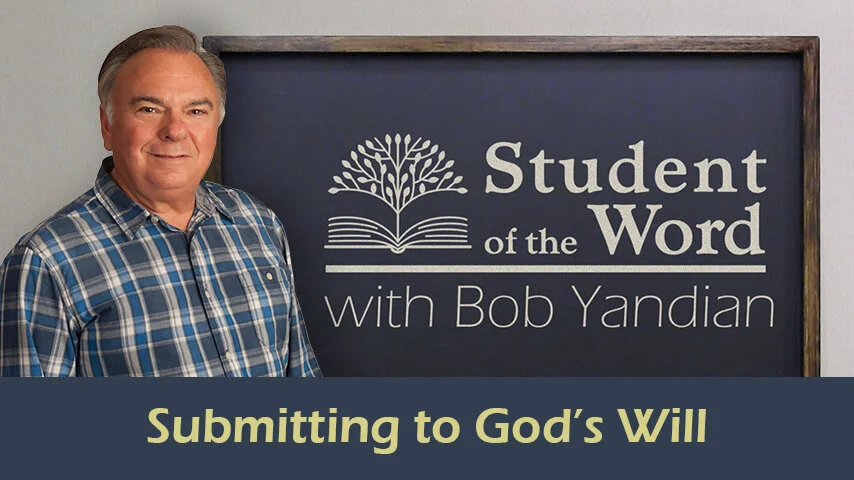David's Recovery From Tragedy
David’s Story After the Death of His Newborn Child
“So David arose from the ground, washed and anointed himself, and changed his clothes; and he went into the house of the Lord and worshiped. Then he went to his own house; and when he requested, they set food before him, and he ate. Then his servants said to him, “What is this that you have done? You fasted and wept for the child while he was alive, but when the child died, you arose and ate food.”
And he said, “While the child was alive, I fasted and wept; for I said, ‘Who can tell whether the Lord will be gracious to me, that the child may live?’ But now he is dead; why should I fast? Can I bring him back again? I shall go to him, but he shall not return to me
Then David comforted Bathsheba his wife, and went into her and lay with her. So she bore a son, and he called his name Solomon. Now the Lord loved him, and He sent word by the hand of Nathan the prophet: So he called his name Jedidiah, because of the Lord.” 2 Samuel 12":20-24
We all face afflictions, trials, persecutions. They end and are over. “Many are the afflictions of the righteous, but the Lord delivers him.” Psalms 34:19
Tragedies are different. They end but are really never over
a. Tragedies seem unexplainable
1. Divorce.
2. Suicide
3. Death of a child
a. Everything seems upside down - Children should never die before their parents
b. Parents never seem to get over it
c. Prayers didn’t seem to get answered. Did God let you down?
What you trusted in for years did not seem to work: Does God still care?
You can’t seem to move on - You have stopped at that point
a. Everything you should do is a fight. It would be easier to close the bedroom door, stay in bed and cover your head
b. When you talk to someone you bring it up and relive the tragedy again from years before, hoping for a different ending
c. You are stopped in time waiting for explanations before moving on
d. God is waiting for you to begin moving, then He will explain
1. Some explanations will come in life
2. Other Explanations will come in eternity
3. When the answers come, they will line up with the word
There is always a story behind the story that explains
a. Israelites did not know why Moses did not lead them to Canaan. The people mourned for 40 days then moved, not knowing why (Proverbs 25:2)
b. People did not know why Saul was no longer king (1 Samuel 16)
Tragedy is not a stop sign but a yield sign to slow down, or stop temporarily to reorient then move on
The Background to the Story
David’s sin began small, then compounded into adultery and murder
David politicized the whole situation. The people thought David was a hero. They did not know the story
Nathan confronted David. How can you call yourself a prophet and not correct the king?
David’s problems were his fault and his judgment came from his own mouth (2 Samuel 12:6)
God gave grace for two capital crimes - adultery and murder. “You will not die” (2 Samuel 12:14)
David asked for forgiveness, thinking the consequences, like his child dying, would be removed like his death sentence
Tragedy happens to all of us and we have to choose what to do with it. David had to choose what to do when his child died
If we knew all reasons behind problems why would we need faith?
Experience is not what happens to you but what you choose to do with what happens to you
One of our greatest life tests is learning to recover or bounce back
Eight Points on David’s Recovery from Tragedy
David Rose Up - You cannot spend your time on your knees because the prayer was not answered as you thought it should be
a. It is time to get up and get on with life
b. The first thing the prodigal was to rise up
c. There comes a time to stop praying, hoping to twist God’s arm to get what you want
d. Things are not changing because they are not going change
e. Knowing when to stop praying is a sign of spiritual maturity
David Washed - How you look affects what you think of yourself and what others think of you
a. To turn your life around, you must first turn yourself around
b. You can think clearer after you bathe, clean up your life, rearrange your home, straighten up your office, throw away some old clothes and buy new ones, etc…
c. Bathing washes off yesterdays dirt like repentance does sin
David Anointed Himself - Put on cologne, fragrant oil after shaving (John 11:2, Ruth 3:3)
a. Bathing was what David thought of himself
b. Shaving, putting on cologne was for his appearance to others
c. Show others the time has come to live again. Life goes on
David Changed His Clothes - David took off his grieving clothes, put on his daily living clothes, and dressed for life again
a. Changing clothes represents a seasonal change from grieving to getting back to life
b. When he was grieving, he probably did not care how he looked, but with a change of attitude came a change of clothing
c. Life is a collection of seasons. Life changes if you want it or not
1. Clothes eventually wear out, but we want to hold onto them
2. Life seasons are part of the pruning of the branches. Seasons end (John 15:1-8)
3. Some friendships are for a season. The memories remain
d. Some people try to hang onto a season that has passed
1. Victorious people know a season has passed and move on
2. Defeated people try to hang onto a season after it’s over
3. Winners take the memories of the old season with them but embrace the new season
4. When summer is here, it’s time to take off the overcoat
David Came Into the House of the Lord and Worshipped - David needed something from God and seemingly got nothing. But David still gave something to God
a. David did not run from church when tragedy hit, he ran to church He ran to God, not from God
b. In fact, he went to church first, before he sat with his family to eat and fellowship
c. Church was the center of David’s life even though it seemed that God let him down (Psalms 84:12)
d. He offered a true sacrifice of praise to God, against all of his feelings
e. “I don’t know what has happened. But, you are still God and You have not changed. Eventually, I will know what happened”
f. We need to worship God and when we know what is going on and when we do not
David Came to His Own House - Family and friends were also David’s stability and security
a. When you come through a tragedy, surround yourself with those who love you. Why?
1. Come back to those who are living
2. You cannot isolate yourself from the living especially family or those who love you
3. We must take responsibility with family who remains in our trust
4. Those who pass on are no longer in our hands but in God’s
David Ate - People going through grief and loss usually don’t eat
a. David fasted and prayed for seven days
b. Eating a meal was a form of finality
c. Grieving comes to an end but life goes on
d. David’s servants asked why he now ate, seemingly celebrating
e. David told them he prayed for the child to live and it did not
1. Now was the time to eat, reenter and celebrate life
2. David could not be happy looking back, only looking forward
f. Eating represented turning from the past to celebrate the future
g. He told the servants, “I will go to him but he will not return to me”
1. Faith must continue after a tragedy as much as it did before
2. Faith must come back to “I know” what is absolutely true
3. “I Know” scriptures:
a. “I know that my Redeemer lives, and He shall stand at last on the earth” (Job 19: 25)
b. “I know whom I have believed and am persuaded that He is able to keep what I have committed to Him until that Day” (2 Timothy 1:12)
c. “I know, O Lord, that Your judgments are right” (Psalms 119:175)
d. “I know that whatever God does, it shall be forever (Ecclesiastes 3:14)
e. “I know that all things work together for good to those who love God, to those who are called according to His purpose (Romans 8:28)
h. Don’t throw away what you know because of what you don’t know
David Made Love to His Wife - He had another child, Solomon
a. Bathsheba, especially, needed David’s affection and attention
1. The king’s castle was not her home
2. These royals were not her family, husband, or children
3. She, too, felt responsible for the adultery and death of her husband and losing all that was important to her
4. And she could tell no one but David
b. Now, she was the last one David went to
c. David must have apologized and told her he was responsible for this mess
d. David made love to Bathsheba
e. From David’s tragedy came the wisest man ever next to Jesus
f. David, like Job, was blessed twice as much as before
Until you repent and get back to trusting God you will never see the greater blessing just ahead













